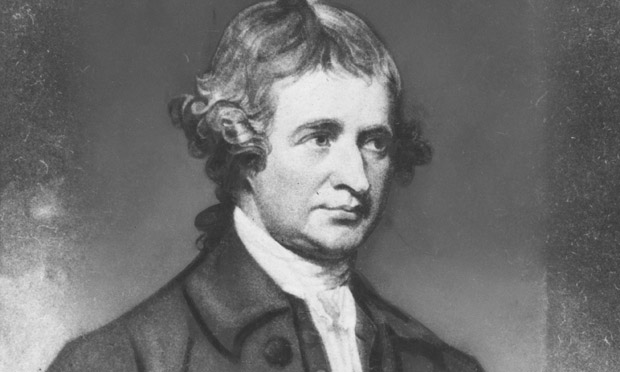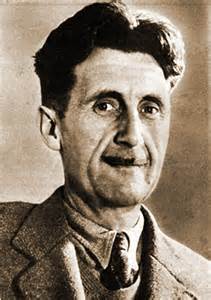A serious inspection of Jefferson's views on religion reveal a man who was not a traditionalist or a conservative but rather a man who was deeply and fundamentally alienated not only from creedal Christianity but also from Judaism. Aside from his reworking of the Gospels, the so-called "Jefferson Bible," nowhere is this more evident than in his letters to various correspondents. Those who would argue that Jefferson held to traditional or otherwise orthodox views regarding either Judaism or Christianity need to be able to explain passages like the following:
His [Jesus's] object was the reformation of some articles in the religion of the Jews, as taught by Moses. That sect had presented for the object of their worship, a being of terrific character, cruel, vindictive, capricious, and unjust. Jesus, taking for his type the best qualities of the human head and heart, wisdom, justice, goodness and adding to them power, ascribed all of these, but in infinite perfection, to the Supreme Being, and formed him really worthy of their adoration. Moses ad either not believed in a a future state of existence, or had not thought it essentially to be explicitly taught to his people. Jesus inculcated that doctrine with emphasis and precision. Moses had bound the Jews to many idle ceremonies, mummeries, and observances of no effect toward producing the social utilities which constitute the essence of virtue; Jesus exposed their futility and insignificance. The one instilled into his people the most anti-social spirit toward other nations; the other preached philanthropy and universal charity and benevolence. The office of reformer of the superstitions of a nation, is ever dangerous. Jesus had to walk on the perilous confines of reason and religion; and a step to right or left might place him within the grasp of the priests of the superstition, a blood-thirsty race, as cruel and remorseless as the being whom they represented as the family God of Abraham, of Isaac and of Jacob, and the local God of Israel. They were constantly laying snares, too, to entangle him in the web of the law. He was justifiable, therefore, in avoiding these by evasions, by sophisms, by misconstructions and misapplication of scraps of the prophets, and in defending himself with these their own weapons, as sufficient, ad homines, at least. That Jesus did not mean to impose himself on mankind as the son of God, physically speaking, I have been convinced by the writings of men more learned than myself in that lore. But that he might conscientiously believe himself inspired from above, is very possible. The whole religion of the Jew, inculcated on him from his infancy, was founded in the belief of divine inspiration. The fumes of the most disorded [sic] imaginations were recorded in their religious code, as special communications from the Deity; and as it could not but happen that in the course of ages, events would now and then turn up to which some of these vague rhapsodies might be accommodated by the aid of allegories, figures types, and other tricks upon words, they have not only persevered their credit with the Jews of all subsequent times, but are the foundation of much of the religions of those who have schismatized from them. Elevated by the enthusiasm of a warm and pure heart, conscious of the high strains of an eloquence which had not been taught him, he might readily mistake the coruscations of his own fine genius for inspirations of an higher order. This belief carried, therefore, no more personal imputation, than the belief of Socrates, that himself was under the care and admonitions of a guardian Daemon.Letter to William Short, Aug. 4, 1820, reprinted in In God We Trust: The Religious Beliefs and Ideas of the American Founding Fathers, edited by Norman Cousins (Harper & Brothers: 1958), pgs. 153-154.
One need not be religious, of course, to be a conservative. There are many conservatives, both in history and in the current age, who don't believe in God or practice a religious tradition. Noted conservative writer George Will, for example, has been quite open about his lack of religious belief, describing himself as an atheist. But it is very difficult to be a conservative, even if one believes in God, if one does not respect the wisdom found in traditional religions. Jefferson, not in his disagreement but in his dismissal of both traditional Christianity and traditional Judaism, demonstrates a deep suspicion and hostility to received faith. Such a disposition cannot be reconciled with a conservative temperament. Whatever else he may have been, Jefferson was not a conservative in matters of religion.
Related item: back when I was posting at the American Creation blog, I explored the background of Jefferson's edited version of the Gospels a bit, available here. As I wrote:
One of the most famous of Thomas Jefferson's religious works is his harmony of the New Testament Gospels. Jefferson edited the Gospels, after consulting versions in Greek, Latin, English and French, with the purpose of distilling what Jefferson thought to be the authentic teachings of Jesus of Nazareth. Jefferson edited out the miracles and most of the supernatural events in the Gospels, while emphasizing the moral & ethical teachings found in the texts. The genesis and purpose of Jefferson's composition of his Gospel harmony is set out pretty clearly in an 1804 letter that Jefferson wrote to noted unitarian thinker Joseph Priestly. In the letter, Jefferson provides some advice to Priestly regarding Priestly's own plan to write out a study of the moral teachings of Jesus. In giving his advice, Jefferson reveals the early stages of his own investigation in that topic:
Related item: back when I was posting at the American Creation blog, I explored the background of Jefferson's edited version of the Gospels a bit, available here. As I wrote:
One of the most famous of Thomas Jefferson's religious works is his harmony of the New Testament Gospels. Jefferson edited the Gospels, after consulting versions in Greek, Latin, English and French, with the purpose of distilling what Jefferson thought to be the authentic teachings of Jesus of Nazareth. Jefferson edited out the miracles and most of the supernatural events in the Gospels, while emphasizing the moral & ethical teachings found in the texts. The genesis and purpose of Jefferson's composition of his Gospel harmony is set out pretty clearly in an 1804 letter that Jefferson wrote to noted unitarian thinker Joseph Priestly. In the letter, Jefferson provides some advice to Priestly regarding Priestly's own plan to write out a study of the moral teachings of Jesus. In giving his advice, Jefferson reveals the early stages of his own investigation in that topic:
I think you cannot avoid giving, as preliminary to the comparison, a digest of his moral doctrines, extracted in his own words fro the Evangelists, and leaving out everything relative to his personal history and character. It would be shore and precious. With a view to do this for my own satisfaction, I had sent to Philadelphia to get tow testaments (Greek) of the same edition, and two English, with a design to cut out the morsels of morality and paste them on the leaves of a book, in the manner you describe as having been pursued in forming your Harmony. But I shall now get the thing done by better hands.Letter to Joseph Priestly, January 29, 1804, reprinted in In God We Trust: The Religious Beliefs and Ideas of the American Founding Fathers, ed. by Norman Cousins (Harper & Brothers: 1958), pg. 171.
The letter from Jefferson to Priestly provides three key insights about the context surrounding the Jefferson Bible. First, Jefferson was not engaging in a unique activity. He wasn't the only one engaging in the production of the Gospel harmony designed to spread a vision of Christianity that was grounded on the moral teachings of Jesus, rather than in the New Testament's teachings about Jesus. Jefferson notes at the end of the passage quoted above some relief at the idea that Priestly is working on a harmony because of Priestly's greater skills at producing such a study.
Second, Jefferson's advice indicates the key to this method: focusing on the words of Jesus rather than the explanation of those words provided by the Evangelists and the other writings in the New Testament. Jefferson's approach fused an antiquarian approach to the Gospels -- trying to get back to the earliest strata of the teachings of Jesus -- with a belief that the Gospel accounts as we have them were an accurate source of those words. Hence, Jefferson sought not only to take the words of Jesus from the New Testament as translated into English, but he sought to take the words from the Greek New Testament as well. It turns out that Jefferson was incorrect about the words of Jesus in the Gospels being the earliest strata of information we have about Jesus -- the epistles of St. Paul were written earlier than any of the Gospels as we currently have them -- but that's an error of application, not of method.
Third, at the time of the letter to Priestly, Jefferson sought to undertake his harmony for his "own satisfaction." Jefferson didn't seek to publish his study at this point, but was thinking of compiling his study for his own use. The nature of how he sought to carry out the composition of the harmony -- cutting out the relevant texts from his copies of the New Testament and pasting them into the "leaves of a book," indicates that he wasn't thinking of sending the text to a publisher. It was to be a private book indicating his own private thoughts, something quite understandable given the fact that Jefferson was a sitting president, an active politician, and one who was constantly dogged by allegations of infidelity regarding religion. For good reason he might seek not to widely publicize his views regarding the nature of Jesus of Nazareth, his life, and his ministry.








,_2nd_president_of_the_United_States,_by_Asher_B._Durand_(1767-1845)-crop.jpg)



